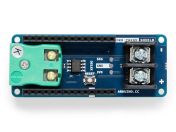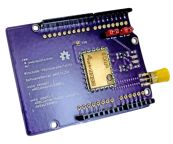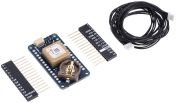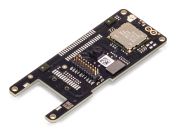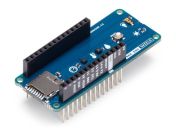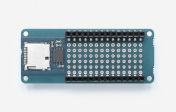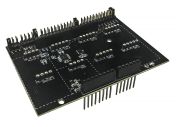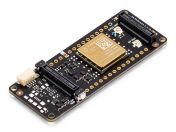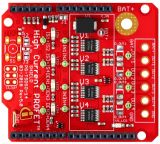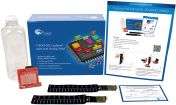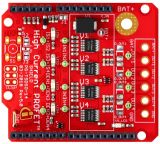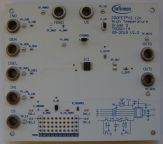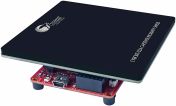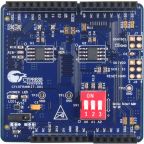Shields For Arduino
An Arduino shield is an additional piece of hardware that enables the expansion of an Arduinos functionality. As Arduino shields usually have the same form-factor or pin position as an Arduino development board shields can easily be plugged in or even stacked via the male headers or female headers. RS offer a wide range of high-quality shields for all of your prototyping and design needs. Choose from leading brands including Seeed Studio, STMicroelectronics, Cypress Semiconductor and of course Arduino.
Types of Shield
Arduino shields are easy-to-use and can come pre-assembled or as kits. There are many different types of add-on compatible shields available depending on what you want to achieve. Some of the most common Arduino shields are;
Ethernet Shields
Ethernet Shields allows you to connect your Arduino to the internet. Once the shield is plugged into the board, you can simply connect to your network. Versions include with PoE and without PoE.
Proto Shields
ProtoShields make it easy for prototyping, it enables the easy connection between a breadboard and the Arduino its self. Typically used at the design stage of an application.
Motor Shields
Motor shields make it easy for you to control the speed and direction motor. Motor Shields can be used to drive DC motors, stepper motors, relays and solenoids.
Xbee Shields
The Arduino Xbee shield allows multiple Arduino boards to communicate wirelessly over distances up to 100 feet (indoors) or 300 feet (outdoors) using the Maxstream Xbee Zigbee module.
CAN-BUS Shields
CAN-Bus Shields use the CAN MCP2515 controller and the MCP2551 transceiver. This module can be simply plugged into an Arduino board to allow it to communicate via the CAN bus or ODB-II. The CAN bus is an industrial bus commonly used because it allows long-distance communication without compromising on communication speed and its reliability.
Related links
- Arduino L298P - A000079
- ZDAUTO Evaluation Board Arduino Arduino Shield Board MIO-UNO
- ZDAUTO Evaluation Board Arduino Arduino Shield Board MIO-UNO-KIT
- Arduino, Ethernet Shield 2
- Arduino, 9 Axis Motion Shield
- DFRobot Arduino Shield for Raspberry Pi
- onsemi NCN5100 Arduino Shield Evaluation Board NCN5121 transceiver Evaluation Board for NCN5100 Arduino NCN5121ASGEVB
- ams OSRAM AS5600-SO_POTUINO Position Sensor Arduino Shield for AS5600 AS5600
